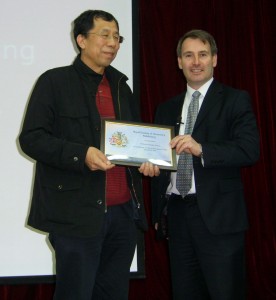 |
||
|
|
||
|
How does GOLD enrich cutting edge science through technical application?
To celebrate gold’s role in science and technology in the International Year of Chemistry, the World Gold Council and the RSC have teamed up to develop a unique ‘microsite’ offering FREE ACCESS to some of the RSC’s best gold-related publications until the end of 2011. There is a spread of historical and cutting-edge papers, spanning catalysis, chemistry, nanotechnology and novel materials.
When you ask someone what comes into their mind when you say the word ‘gold’, the responses you receive rarely offers any surprise. Jewellery is probably at the forefront of most people’s mind, along with various examples of gold’s role in the world of finance. Words such as ‘science’, ‘technology’ and (most definitely) ‘chemistry’ rarely get a mention. This, perhaps, is not a surprise. To most people’s mind gold is eternal – the ultimate preserver of wealth, a constant typified by the jewellery many of us wear often throughout our entire lives. Physical sciences such as chemistry on the other hand are all about change – manipulating the elements to generate useful materials. How could gold play a role in chemistry? Of course, scientists now know that gold exhibits rich chemistry under certain conditions. 100 years ago Rutherford unravelled the structure of the atom with his famous ‘gold foil’ experiments. Even longer ago, Faraday correctly described the true nature of colloidal gold. Since then, the link between gold and chemistry has grown stronger by the decade. From catalysis to novel chemicals to nanotechnology, researchers have continually identified new uses for the metal, building on the discoveries of the past. We invite you to take a look through the collection, and we hope you find something relevant to your area of research. Dr Trevor Keel, World Gold Council
Professor Graham Hutchings, Cardiff University
Discover the GOLD today… 100 FREE RESEARCH ARTICLES
Visit www.rsc.org/gold100 – User name wgc – Password wgc
Other RSC GOLD links of interest:
• Chemistry World Gold Podcast with Johnny Ball” – – – – – – – – – – – – – – – – – – – – – – – – – – – – – – – – – – – – – – – – – – – – – – – – – – – – – – – – – – – – – – – – |
||
 |
||
|
|
||
![]()












